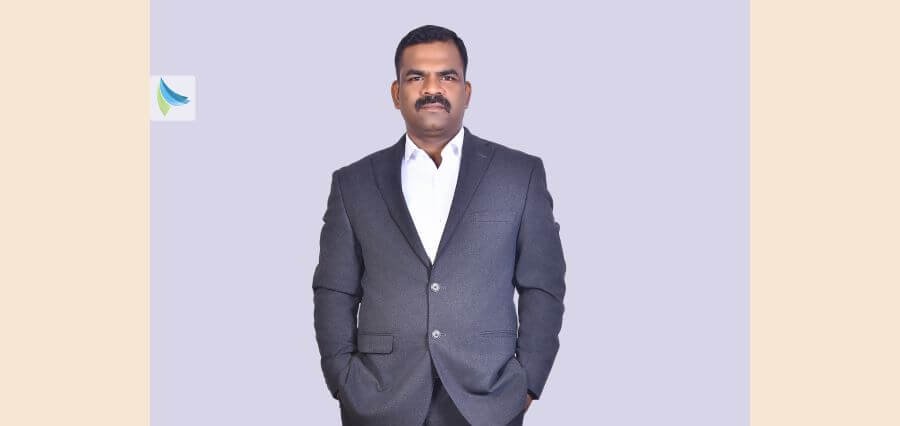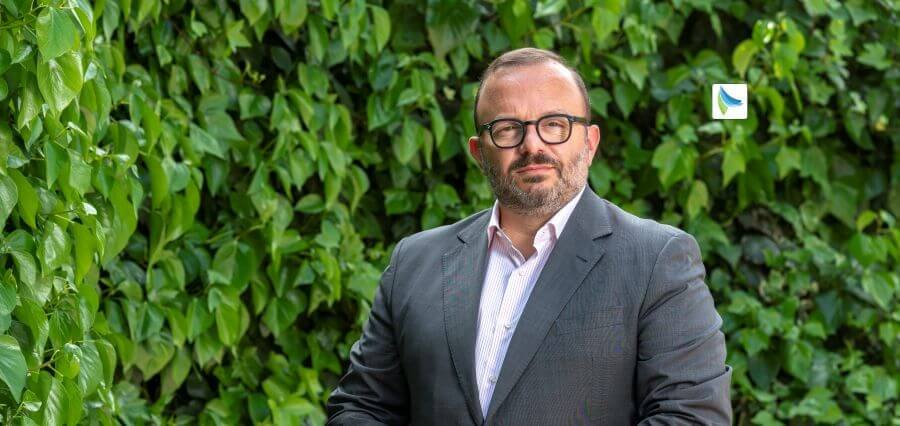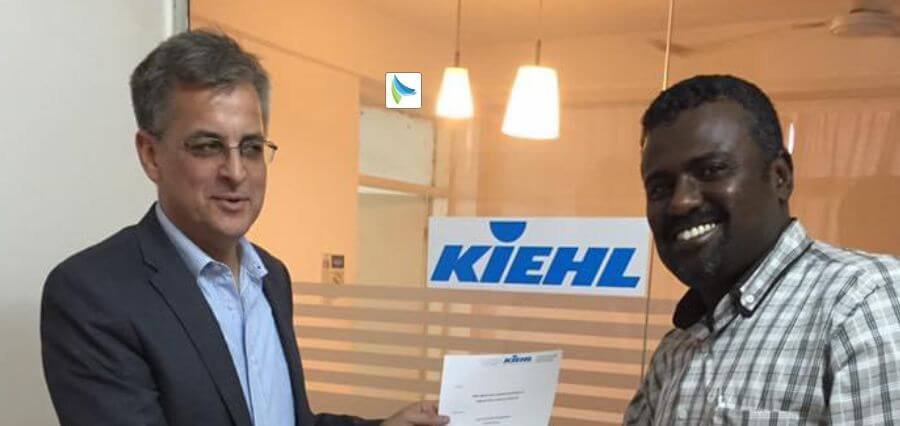Identifying and delivering value is the only way to develop scalable growth strategies for an organization while remaining obsessed with customer needs. Through a commitment to being a leader from any position on the team you can assist in propelling the company to newer heights. Letting authenticity and humility guide her, Paula Carneiro Cox leads that charge, managing a business development team whose responsibility is to match value to needs within the WonderBotz customer base. She attracts new clients through compelling content, web engagement and community education.
As the Senior Vice President of Business Development, Paula is committed to helping clients quickly deliver quality and value back to their organization. Her strength is helping them identify roadmaps to value and encouraging internal networking among executives. WonderBotz is a professional services firm focused on the advisory, design, deployment, and ongoing management of Intelligent Process Automation involved in solution-based outcomes.
Insights Success caught up with Paula in our endeavor to find “Top 10 Inspiring Business Leaders Making a Difference in 2022” and talked about her professional journey, the roles she played in operations prior to her current role as a growth leader, and how it led to a career following her passion for connecting people, technology and processes.
Below are the highlights of the interview:
Briefly describe your professional journey up until now.
I started my career at a Global Manufacturing and Logistics organization, mapping out processes and interactions between systems, people, and ultimately, technicians. That segued into a proper Process Analyst role where my job was to write the procedural documentation and capture SLAs for the BlackBerry Global Data Center team.
Through a series of operational-related roles and process improvement projects, I began to realize I had a gift for simplifying complex tech challenges for business leaders. My career morphed with a few turns into the M&A space, always with a laser focus on my interest in process improvement and efficiency.
These disciplines naturally transition into a consulting role in the automation space. I turned my visio documents into Robot Design Documents and haven’t looked back. Today I sit on the leadership team at WonderBotz, servicing clients who want to improve their organization, their employees, and their quality of work-life through intelligent automation. I have a feeling I’ll be sticking around this industry and line of work for years to come.
What challenges did you face along the way?
In my early tech career, I was always one of the only women in the room, and I was certainly the youngest by far. It didn’t hinder my growth, but it helped shape my diplomacy tactics and refined my EQ so that I could be effective and my voice would be just as influential as my male counterparts climbing the ranks. I’ve always advocated for equal representation and have only had a few snags along the way as have most women executives in my circle, but they were good learning moments for me and have served as valuable stories for the women I mentor in the technology space.
Along similar lines, as a self-proclaimed outlier, the idea of being a “lifer” at an organization never appealed to me. Not for lack of loyalty, but for my need to continuously grow, be challenged, and give back. Fortunately, my sentiments have been echoed over the years, and in this modern age, employees seek alternative experiences, multiple industries to work for, shorter tenures, and loyalty to their values rather than an organization they serve. I preceded that philosophy at a time it wasn’t very popular, staying at a firm anywhere from 2-4 years before moving on to the next learning experience.
At the time, hiring managers and recruiters would view it negatively. It was only when the recession of 2007-08 kicked into high gear that my work experience outshined the “loyalty” card, and I was a hot hire. I had ten years of professional work before I completed the final few credits to get my diploma, so I did it at 28 years old, and today I am proud of that journey. My career path and the corresponding challenges help me connect with today’s developers, contingency laborers, and gig-workers who should take every bit as much pride in their work as someone with a pedagogical education track. Success with an alternative approach and sharing that with rising workplace stars has become part of my “why.”
What significant impact have you brought to the RPA industry?
Proudly, I’ve had the opportunity to impact both the executive leadership side of the industry encouraging stories and elevating the discussion to value rather than “features and functions,” and also within the grassroots of the RPA developer community “hands on keyboard” level.
I learned RPA on the UiPath platform after a operational process career, and through WonderBotz now work closely with Blue Prism and Automation Anywhere, too. All of these “anchor RPA platforms,” as I call them, began to saturate the market at a time when the advisors and practitioners were learning best practices alongside their clients. I made it a point to get my BA Certification for credibility, took off my “operations” hat, and went into the commercial and business development side of the industry.
I was one of the first to interview CFOs and facilitate roundtable discussions with my partners to help evangelize RPA through social media and reach a broader crew. Partners like to work with me for my willingness to both strategize and cold call as needed- when you are experiencing and sharing the impact stories this tech category can quickly add, it’s easy to passionately spread the word. I think I help do that in a gentle, unintimidating way to clients and am very effective in identifying automation suitability thanks to my operational background in process improvement and process documentation. And just to note, of course, there are several other incredible intelligent automation partners we work with-these three we have made the most impact on.
Tell us about WonderBotz and its foundation pillar.
WonderBotz was founded on the principle of quality outcomes, no matter what. Our inception story is one of the main reasons I was attracted to WonderBotz. I met WonderBotz leadership at a few industry conferences before we began formally courting, and I was immediately aligned with the partnership value system they shared. I met Bhavyesh Virani in New York on the east coast, and later met Steve LaValle in Las Vegas. I connected instantly with each of them. WonderBotz hires, trains, and retains the best talent in the RPA space, period. We have service providers and competitors knocking on our doors every day for developer support or solution design, not to mention a pipeline of client work and net new buyers we meet every week because our expertise and talent are so widely known.
We have a leadership team that backs their word and a partner ecosystem that allows us to pull any arrow from our quiver as we seek to continuously innovate our clients’ operations. It is a special place for many reasons, but the integrity behind our leaders’ promising outcomes “no matter what” is something easy to stand behind.
How does WonderBotz promote workforce flexibility, and what is your role in it?
The very nature of automation work is remote when the proper methodology is followed. The Business Analyst function and Customer Success leaders we have on our client projects, however, make time for meeting clients in person and having a more frequent cadence depending on the stage of the program. My Business Development Analysts are in various parts of India, but our proximity in work and collaboration is such that I feel I already know them. Hoping to finally meet them in person next year! The US Growth Team comes together more frequently, and we proudly inaugurated our headquarters in Princeton, New Jersey earlier this summer. Even still, we have a hybrid policy so that our employees can maintain their work-life balance. We know there are times when 12 hour days can happen in the consulting and advisory world; that’s why it’s important to promote a culture of flexibility. At the end of the day, it’s about trust and accountability- the truth about someone’s productivity always shakes itself out.
What is your take on technology’s importance, and how are you leveraging it?
I believe that in some shape or form, every industry will have a digital modification, improvement, or full transformation within the next 20 years. Technology is extremely important, but it is also getting very saturated, making noise that mutes the value. Technology for the sake of technology or automating just to automate are poor reasons to apply technology. In order to increase efficiency, cut costs, reduce errors, improve the scalability of output volume, organize larger data sets, etc., it is good to have a healthy tech mindset and see where there can be an answer in a platform or solution. I believe in creating scalable solutions through RPA and adjacent technologies because the power of the process is in your hands to adjust and reconfigure, at scale, without training teams or departments.
In my personal function, I leverage technology to organize the thousands of relationships I manage and maintain the important “human” details about my clients and colleagues top of mind. I’d love to meet anyone who says technology is NOT important in this modern world.
What will be the next significant change in the Intelligent Automation industry, and how are you preparing for it?
I believe that Intelligent Automation (IA) will be a standalone business unit much like a shared-service center concept, only more of a NOC-like environment. IA touches many disciplines and as the industry grows in popularity and buyers begin to see how cost-efficient it is, more folks from the business are upskilling into the IA world and changing the type of talent that performs this work. It could be a whole new category of degrees and training. We are even seeing courses rise up at Universities supporting Intelligent Automation.
Fundamentally, I think all intelligent automation methodologies have been headed in three directions for some time, 1) productizing RPA + Adjacent tech solutions and selling them as a service, and/or 2) more Low Code/No Code digital assistant-type software for the individual 3) AI-powered Process and Task mining will expose areas of the business that need attention to increase profitability.
With our partner-centric mindset at WonderBotz, we have aligned with a few players in these areas and have enabled support teams. Clients trust us with their business challenges because, as IA advisors, it is our duty to understand what is coming down the pike in our industry and where it could apply to their business challenges. One thing is for sure; it will never stop changing.
What are your goals in the upcoming future?
My goal is to help WonderBotz reach our strategic revenue and client acquisition goals over the next year. It is by staying very present in the Intelligent Automation space and offering my support, guidance, and experience to the aspiring practitioners so they stay motivated and understand how their part of the work affects the bigger picture. It has also informally become my duty to share the message of Intelligent Automation with Finance Leaders, primarily CFOs or Controllers, and I will continue to do that with active participation in the CFO Leadership Council.
Personally, I plan to reactivate some of my mentoring channels, and I have made it a goal to begin accepting speaking engagements again and getting out in the automation community more for networking and the exchange of ideas. I am fortunate to have a brilliant network of all varieties.
What advice would you like to give the next generation of aspiring business leaders?
It has become a completely overused “buzzword,” unfortunately, but the depth of its meaning is my advice to all: authenticity. The key, however, is knowing yourself in order to present that truth to the world. I see so many youngsters rising up with a chip on their shoulder, a sense of entitlement, and a bravado about what work should look like. You simply don’t know yet!
And guess what? That’s perfectly ok. I strive to be the same Paula at work, with my clients, with my employees, with my family or friends, and with my husband. Sometimes she is silly, sometimes she is serious, but she is always the truth-telling woman with integrity who works hard and will come through for you in a pinch. It is important for the next generation to recognize that the virtue of humility is important and can only be experienced when we admit to needing help. No matter what stage of my career, there is always something else for me to learn, especially in a rapidly moving industry like tech. It is crucial to maintain integrity, work hard and know yourself because that will make up the approachable side of you that will get noticed, valued, and promoted. Not to mention, keep you happy.
Paula Carneiro Cox,
SVP of Business Development
before we began formally courting, and I was immediately aligned with the partnership value system they shared. I met Bhavyesh Virani in New York on the east coast, and later met Steve LaValle in Las Vegas. I connected instantly with each of them. WonderBotz hires, trains, and retains the best talent in the RPA space, period. We have service providers and competitors knocking on our doors every day for developer support or solution design, not to mention a pipeline of client work and net new buyers we meet every week because our expertise and talent are so widely known. We have a leadership team that backs their word and a partner ecosystem that allows us to pull any arrow from our quiver as we seek to continuously innovate our clients’ operations. It is a special place for many reasons, but the integrity behind our leaders’ promising outcomes “no matter what” is something easy to stand behind.
How does WonderBotz promote workforce flexibility, and what is your role in it?
The very nature of automation work is remote when the proper methodology is followed. The Business Analyst function and Customer Success leaders we have on our client projects, however, make time for meeting clients in person and having a more frequent cadence depending on the stage of the program. My Business Development Analysts are in various parts of India, but our proximity in work and collaboration is such that I feel I already know them. Hoping to finally meet them in person next year! The US Growth Team comes together more frequently, and we proudly inaugurated our headquarters in Princeton, New Jersey earlier this summer. Even still, we have a hybrid policy so that our employees can maintain their work-life balance. We know there are times when 12 hour days can happen in the consulting and advisory world; that’s why it’s important to promote a culture of flexibility. At the end of the day, it’s about trust and accountability- the truth about someone’s productivity always shakes itself out.
What is your take on technology’s importance, and how are you leveraging it?
I believe that in some shape or form, every industry will have a digital modification, improvement, or full transformation within the next 20 years. Technology is extremely important, but it is also getting very saturated, making noise that mutes the value. Technology for the sake of technology or automating just to automate are poor reasons to apply technology. In order to increase efficiency, cut costs, reduce errors, improve the scalability of output volume, organize larger data sets, etc., it is good to have a
healthy tech mindset and see where there can be an answer in a platform or solution. I believe in creating scalable solutions through RPA and adjacent technologies because the power of the process is in your hands to adjust and reconfigure, at scale, without training teams or departments. In my personal function, I leverage technology to organize the thousands of relationships I manage and maintain the important “human” details about my clients and colleagues top of mind. I’d love to meet anyone who says technology is NOT important in this modern world.
What will be the next significant change in the Intelligent Automation industry, and how are you preparing for it?
I believe that Intelligent Automation (IA) will be a standalone business unit much like a shared-service center concept, only more of a NOC-like environment. IA touches many disciplines and as the industry grows in popularity and buyers begin to see how cost-efficient it is, more folks from the business are upskilling into the IA world and changing the type of talent that performs this work. It could be a whole new category of degrees and training. We are even seeing courses rise up at Universities supporting Intelligent Automation. Fundamentally, I think all intelligent automation methodologies have been headed in three directions for some time, 1) productizing RPA + Adjacent tech solutions and selling them as a service, and/or 2) more Low Code/No Code digital assistant-type software for the individual 3) AI-powered Process and Task mining will expose areas of the business that need attention to increase profitability. With our partner-centric mindset at WonderBotz, we have aligned with a few players in these areas and have enabled support teams. Clients trust us with their business challenges because, as IA advisors, it is our duty to understand what is coming down the pike in our industry and where it could apply to their business challenges. One thing is for sure; it will never stop changing.
What are your goals in the upcoming future?
My goal is to help WonderBotz reach our strategic revenue and client acquisition goals over the next year. It is by staying very present in the Intelligent Automation space and offering my support, guidance, and experience to the aspiring practitioners so they stay motivated and understand how their part of the work affects the bigger picture. It has also informally become my duty to share the message of Intelligent Automation with Finance Leaders, primarily CFOs or Controllers, and I will continue to do that with
active participation in the CFO Leadership Council. Personally, I plan to reactivate some of my mentoring channels, and I have made it a goal to begin accepting speaking engagements again and getting out in the automation community more for networking and the exchange of ideas. I am fortunate to have a brilliant network of all varieties.
What advice would you like to give the next generation of aspiring business leaders?
It has become a completely overused “buzzword,” unfortunately, but the depth of its meaning is my advice to all: authenticity. The key, however, is knowing yourself in order to present that truth to the world. I see so many youngsters rising up with a chip on their shoulder, a sense of entitlement, and a bravado about what work should look like. You simply don’t know yet! And guess what? That’s perfectly ok. I strive to be the same Paula at work, with my clients, with my employees, with my family or friends, and with my husband. Sometimes she is silly, sometimes she is serious, but she is always the truth-telling woman with integrity who works hard and will come through for you in a pinch. It is important for the next generation to recognize that the virtue of humility is important and can only be experienced when we admit to needing help. No matter what stage of my career, there is always something else for me to learn, especially in a rapidly moving industry like tech. It is crucial to maintain integrity, work hard and know yourself because that will make up the approachable side of you that will get noticed, valued, and promoted. Not to mention, keep you happy.



















